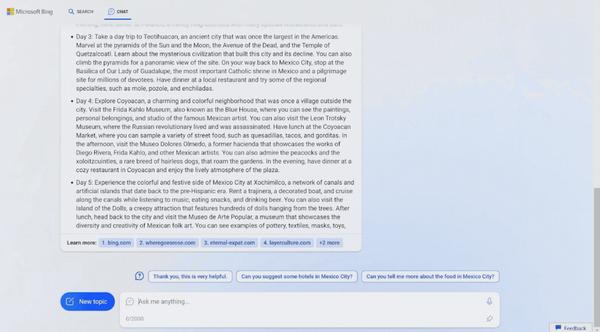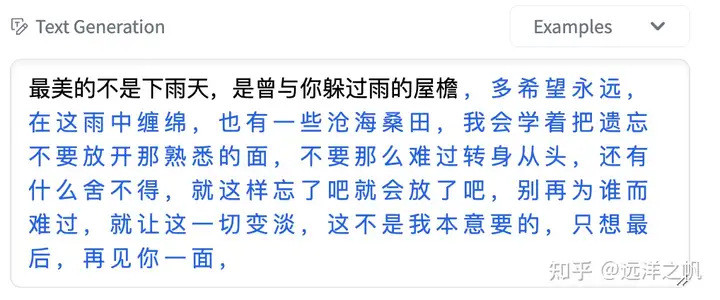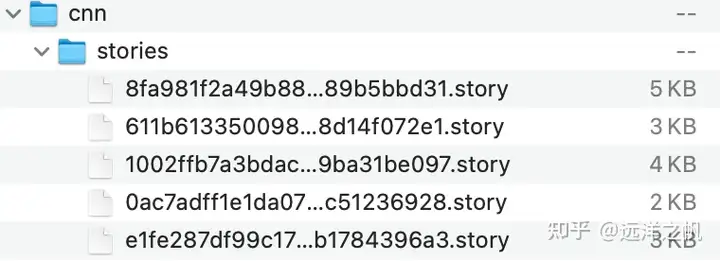动手做一个mini-chatgpt
开场最近chatgpt已经火爆了,几乎是家喻户晓老少皆知啊,公测推出60天后就已经是UV人数过亿,日访问量号称也是过亿。投资chatgpt研发团队的微软也是2个月内迅速推出自己的chatgpt的bing搜索,股票下载量都是暴增啊。前面文章已经介绍过chatgpt技术可能会对整个人类组织分工带来的影响以及原因,这里就不在继续歪歪了。chatgpt的一些思考

从这篇文章开始,我打算实现一个mini版本的chatgpt,把背后的原理算法、数据准备工作都会介绍到。这系列文章预计会有7-8篇,主要是讲实现,不会介绍transformer模型技术细节、ppo数学推理。到最后大家可以收获一个问答式的文本生成工具,大家也可以根据自己需要定制训练自己的模型做自己想要做的事,比如一个跟懂自己智能助理、解读论文的神器、可以通过语音方式理解需求帮你控制智能家居、通过语音帮你画一幅你想要的画...第一篇先介绍整个RLHF大训练框架,介绍SFT模型训练:数据、基本模型。先介绍单个模型大家先熟悉代码在自己机器上试跑训练下数据。第二部分会对模型改造、代码封装,让代码能够在多卡多机上训练;更工业风。第三部分把流程封装,三部分的代码做一个整合,到这边你就可以得到一个真正能够训练中文语料的链路框架,并且可以自己准备训练标注语料。第四部分会给大家介绍基于这个小的chatgpt引擎做的各种应用探索。宏观介绍

整个链路包括三块:
- 文本生成AGGENT,为了得到一个不错Agent我们需要用‘输入-输出’语料对训练一个不错基准模型,把这个过程叫做sft
- 评判文本生成好坏的Reward,为了得到Reward模型我们需要用‘输入-输出list’语料做一个排序打分模型,把这个过程叫做Reward
- 利用Reward反馈调试Agent模型PPO调控器



SFT实现先训练一个基本的有文本生成能力的模型,可以选用GPT或者T5框架模型来做训练。

fromtransformersimportBertTokenizer,GPT2LMHeadModel,TextGenerationPipelinetokenizer=BertTokenizer.from_pretrained("uer/gpt2-chinese-lyric")model=GPT2LMHeadModel.from_pretrained("uer/gpt2-chinese-lyric")text_generator=TextGenerationPipeline(model,tokenizer)text_generator("最美的不是下雨天,是曾与你躲过雨的屋檐",max_length=100,do_sample=True)GPT2
数据预处理部分
数据样式:数据使用了deepmind整理的cnnstory部分数据:原始数据样式如下:

(CNN)SyriaisaHellonEarththatisexpandinginplainsight.Thedeathtolltherehasdoubledinayearstime,ifanoppositiongroupisright.Sincecivilwarbrokeoutthere,310,000peoplehavebeenkilled,theSyrianObservatoryforHumanRightssaidThursday.Ayearearlier,SOHRstallystoodat162,402.Andtheyearbefore,theUnitedNationsputthedeathtollat70,000.ViolencehasplungedwelloverhalfofallSyriansintosuchdestitutionthattheyareindireneedofsurvivalaid,theUnitedNationssays,asfoodrationsarebeingcutforlackofdonations.Numbersalonecantconveytheimmeasurableanguishofmillions,butmaybeitcanremindtherestofusofthemagnitudeoftheworldscurrentlygreatesttragedy.Thenumberofyearssinceperpetualbloodshedbegan,sincedictatorBasharal-AssadssecurityforcesfiredoncrowdsofdemonstratorsandarmedmilitantgroupsroseupagainsthiminMarch2011.PercentageoftheSyrianpopulationkilled.Itwouldbelikekilling3to4millionAmericans.TherangecomesfromtheSOHRsdeathtollof310,000andarecentlowerestimatebytheU.N.ofatleast220,000dead.ThenumberofSyriansinneedofimmediatelife-savingaid,accordingtotheU.N.ThatsthepopulationofMoscow.Syriansdrivenfromtheirhomes,theU.N.says.ImaginetheentireBostonmetropolitanareaemptiedout.Syrianswhohavefledasrefugeestoneighboringcountries,creatinghumanitarianandeconomichardshipacrossSyriasborders.Turkeyhastakenin1.7million,Lebanon1.2million,Jordan625,000,andIraq245,000.ThereductioninthesizeoffoodrationstheWorldFoodProgrammesaysithasbeenforcedtomakeduetoalackofdonations.Thatmeanspeoplereceivingaidwillgetonly60%ofthedailynutritiontheyneed.@highlightMorepeoplehavebeendisplacedthanliveinMoscow;morepeoplelosttheirhomesthanliveingreaterBoston@highlightTheWFPhascutfoodrationsizesby30%forlackofdonations上面数据@highlight部分就是文章的摘要部分
这个文件命名为until.py,importrandomimportnumpyasnpimporttorchimporttorch.nn.functionalasFfromtransformersimportGPT2Tokenizerfromtqdmimporttnrange下面方法主要用来做gptencodedefadd_special_tokens():""" Returns GPT2 tokenizer after adding separator and padding tokens """tokenizer=GPT2Tokenizer.from_pretrained(gpt2)special_tokens={pad_token:<|pad|>,sep_token:<|sep|>}num_add_toks=tokenizer.add_special_tokens(special_tokens)returntokenizerdefset_seed(args):random.seed(args.seed)np.random.seed(args.seed)torch.manual_seed(args.seed)ifargs.n_gpu>0:torch.cuda.manual_seed_all(args.seed)deftop_k_top_p_filtering(logits,top_k=0,top_p=0.0,filter_value=-float(Inf)):""" Filter a distribution of logits using top-k and/or nucleus (top-p) filteringArgs:logits: logits distribution shape (vocabulary size)top_k > 0: keep only top k tokens with highest probability (top-k filtering).top_p > 0.0: keep the top tokens with cumulative probability >= top_p (nucleus filtering).Nucleus filtering is described in Holtzman et al. (http://arxiv.org/abs/1904.09751)From: https://gist.github.com/thomwolf/1a5a29f6962089e871b94cbd09daf317"""assertlogits.dim()==1batch size 1 for now - could be updated for more but the code would be less cleartop_k=min(top_k,logits.size(-1))Safety checkiftop_k>0:Remove all tokens with a probability less than the last token of the top-kindices_to_remove=logits<torch.topk(logits,top_k)[0][...,-1,None]logits[indices_to_remove]=filter_valueiftop_p>0.0:sorted_logits,sorted_indices=torch.sort(logits,descending=True)cumulative_probs=torch.cumsum(F.softmax(sorted_logits,dim=-1),dim=-1)Remove tokens with cumulative probability above the thresholdsorted_indices_to_remove=cumulative_probs>top_pShift the indices to the right to keep also the first token above the thresholdsorted_indices_to_remove[...,1:]=sorted_indices_to_remove[...,:-1].clone()sorted_indices_to_remove[...,0]=0indices_to_remove=sorted_indices[sorted_indices_to_remove]logits[indices_to_remove]=filter_valuereturnlogitsdefsample_seq(model,context,length,device,temperature=1,top_k=0,top_p=0.0):""" Generates a sequence of tokensArgs:model: gpt/gpt2 modelcontext: tokenized text using gpt/gpt2 tokenizerlength: length of generated sequence.device: torch.device object.temperature >0: used to control the randomness of predictions by scaling the logits before applying softmax.top_k > 0: keep only top k tokens with highest probability (top-k filtering).top_p > 0.0: keep the top tokens with cumulative probability >= top_p (nucleus filtering)."""context=torch.tensor(context,dtype=torch.long,device=device)context=context.unsqueeze(0)generated=contextwithtorch.no_grad():for_intnrange(length):inputs={input_ids:generated}outputs=model(**inputs)Note: we could also use past with GPT-2/Transfo-XL/XLNet (cached hidden-states)next_token_logits=outputs[0][0,-1,:]/temperaturefiltered_logits=top_k_top_p_filtering(next_token_logits,top_k=top_k,top_p=top_p)next_token=torch.multinomial(F.softmax(filtered_logits,dim=-1),num_samples=1)generated=torch.cat((generated,next_token.unsqueeze(0)),dim=1)returngenerateddefbeam_search(model,context,length,beam_size,device,temperature=1):""" Generate sequence using beam search https://machinelearningmastery.com/beam-search-decoder-natural-language-processing/Args:model: gpt/gpt2 modelcontext: tokenized text using gpt/gpt2 tokenizerlength: length of generated sequence.beam_size: >=1 and <= total_no_of_tokensdevice: torch.device object.temperature >0: used to control the randomness of predictions by scaling the logits before applying softmax."""context=torch.tensor(context,dtype=torch.long,device=device)context=context.unsqueeze(0)withtorch.no_grad():inputs={input_ids:context}outputs=model(**inputs)next_token_logits=outputs[0][0,-1,:]/temperaturenext_token_probs=F.softmax(next_token_logits)scores,indices=torch.topk(next_token_probs,beam_size)indices=indices.tolist()sequences=[[c]forcinindices]for_intnrange(length-1):logits=torch.zeros(beam_size*len(next_token_logits))forjinrange(len(sequences)):new_generated=torch.cat((context,torch.tensor([sequences[j]],dtype=torch.long,device=device)),dim=1)inputs={input_ids:new_generated}outputs=model(**inputs)next_token_logits=outputs[0][0,-1,:]/temperaturenext_token_probs=F.softmax(next_token_logits)start,stop=j*len(next_token_logits),(j+1)*len(next_token_logits)logits[start:stop]=scores[j]*next_token_probsscores,new_logits_indices=torch.topk(logits,beam_size)logits=(new_logits_indices%50259).tolist()forjinrange(len(sequences)):sequences[j]=sequences[j]+[logits[j]]returnscores,sequencesdefgenerate_beam_sample(data,tokenizer,model,num=1,length=100,beam_size=3,device=torch.device(cuda)):""" Generate summaries for "num" number of articles using beam search.Args:data = GPT21024Dataset objecttokenizer = gpt/gpt2 tokenizernum = number of articles for which summaries has to be generated"""foriinrange(num):sample=data[i]idx=sample[sum_idx]context=sample[article][:idx].tolist()summary=sample[article][idx+1:][:100].tolist()scores,sequences=beam_search(model,context,length,beam_size,device)print(new_article,end=\n\n)print(tokenizer.decode(context[:-1]),end=\n\n)print(actual_summary,end=\n\n)print(tokenizer.decode(summary),end=\n\n)foriinrange(len(sequences)):text=tokenizer.convert_ids_to_tokens(sequences[i],skip_special_tokens=True)text=tokenizer.convert_tokens_to_string(text)print("generated_summary-{}and Score is{}.".format(i+1,scores[i]),end=\n\n)print(text,end=\n\n)defgenerate_sample(data,tokenizer,model,num=1,eval_step=False,length=100,temperature=1,top_k=10,top_p=0.5,device=torch.device(cuda)):""" Generate summaries for "num" number of articles.Args:data = GPT21024Dataset objecttokenizer = gpt/gpt2 tokenizermodel = gpt/gpt2 modelnum = number of articles for which summaries has to be generatedeval_step = can be True/False, checks generating during evaluation or not"""foriinrange(num):sample=data[i]idx=sample[sum_idx]context=sample[article][:idx].tolist()summary=sample[article][idx+1:][:100].tolist()generated_text=sample_seq(model,context,length,device,temperature,top_k,top_p)generated_text=generated_text[0,len(context):].tolist()text=tokenizer.convert_ids_to_tokens(generated_text,skip_special_tokens=True)text=tokenizer.convert_tokens_to_string(text)ifeval_step==False:print(new_article,end=\n\n)print(tokenizer.decode(context),end=\n\n)print("generated_summary",end=\n\n)print(text,end=\n\n)print(actual_summary,end=\n\n)print(tokenizer.decode(summary),end=\n\n)else:print(tokenizer.decode(context),end=\n\n)print("generated_summary",end=\n\n)把数据转成一篇文章对应一个json文件格式,json包括article、abstract两部分,同时对文本做gptencode编码处理代码如下:
import json
import os
import pickle
import sys
import time
from utils import add_special_tokens
tokenizer = GPT2Tokenizer.from_pretrained(gpt2)
dm_single_close_quote = \u2019 unicode
dm_double_close_quote = \u201d
acceptable ways to end a sentence
END_TOKENS = [., !, ?, ..., "", "`", ",
dm_single_close_quote, dm_double_close_quote, ")"]
def fix_missing_period(line):
"""Adds a period to a line that is missing a period"""
if "@highlight" in line:
return line
if line == "":
return line
if line[-1] in END_TOKENS:
return line
return line + " ."
def get_art_abs(lines):
""" return as list of sentences"""
truncated trailing spaces, and normalize spaces
lines = [ .join(line.strip().split()) for line in lines]
lines = [fix_missing_period(line) for line in lines]
Separate out article and abstract sentences
article_lines = []
highlights = []
next_is_highlight = False
for idx, line in enumerate(lines):
if line == "":
continue empty line
elif line.startswith("@highlight"):
next_is_highlight = True
elif next_is_highlight:
highlights.append(line)
else:
article_lines.append(line)
return .join(article_lines), .join(highlights)
def write_json(i,article, abstract):
""" Saves a json file."""
file = "./gpt2_1024_data/"+str(i)+".json"
js_example = {}
js_example[id] = i
js_example[article] = article
js_example[abstract] = abstract
with open(file, w) as f:
json.dump(js_example, f, ensure_ascii=False)
def main(file_names, directory):
""" Reads txt files, extract articles and summaries, tokenize them and save as json files
Args:
file_names: list, all the articles with total no of tokens less than 1024
directory: string, directory where files in file_names is stored
"""
tokenizer = add_special_tokens()
print("Execution Started...")
train_ids = []
file_id_map = {}
i = 0
for file in file_names:
file = os.path.join(os.getcwd(),directory,file)
with open(file,r,encoding=utf-8) as f:
lines = f.read().split(\n\n)
article, abstract = get_art_abs(lines)
article, abstract = tokenizer.encode(article), tokenizer.encode(abstract)
if len(article)>0 and len(abstract)>0 and (len(article)+len(abstract))<=1023:
train_ids.append(i)
write_json(i,article,abstract)
file_id_map[i] = os.path.basename(file).replace(.story, )
i += 1
if i%100==0:
print(i, " files written")
x,y = int(len(train_ids)*0.8), int(len(train_ids)*0.9)
valid_ids = train_ids[x:y]
test_ids = train_ids[y:]
train_ids = train_ids[:x]
with open("ids.json",w) as f:
js = {}
js[train_ids] = train_ids
js[valid_ids] = valid_ids
js[test_ids] = test_ids
json.dump(js,f)
file_id_map maps the json file ids to actual cnn/dm file names ending with ".story"
print("saving file_id_map...")
with open("file_id_map.pickle", wb) as f:
pickle.dump(file_id_map,f)
print("file_id_map saved.")
if __name__ == __main__:
start = time.time()
with open(sys.argv[1],rb) as f:
file_sizes = pickle.load(f)
file_names = [file for file,size in file_sizes.items() if size<=1023] only consider files with total no of tokens less than 1024
if sys.argv[1].startswith("cnn"):
directory = "cnn_stories_tokenized"
os.chdir(/CNN/)
else:
directory = "dm_stories_tokenized"
os.chdir(./DM/)
main(file_names, directory)
print("total_time_taken: ", (time.time()-start)/60, " minutes")处理完的数据格式如下
{"id":0,"article":[12,43,27912,12,8100,532,21095,33,12,1377,7214,4621,286,262,890,5041,351,257,474,5978,284,534,17627,764,775,1965,1312,6207,3816,284,2648,5205,286,511,4004,7505,3952,5636,2171,764],"abstract":[9787,503,8100,13,785,7183,705,7505,3952,5205,764,1471,19550,287,319,262,995,705,82,27627,6386,1660,19392,764]}模型训练部分
加载数据部分
这部分代码拷贝命名dataset.pyimportosimportjsonimportnumpyasnpimporttorchfromtorch.utils.dataimportDatasetfromutilsimportadd_special_tokensclassGPT21024Dataset(Dataset):def__init__(self,root_dir,ids_file,mode=train,length=None):self.root_dir=root_dirself.tokenizer=add_special_tokens()with open(ids_file,r) as f:if mode==train:self.idxs = np.array(json.load(f)[train_ids])elif mode==valid:self.idxs = np.array(json.load(f)[valid_ids])elif mode==test:self.idxs = np.array(json.load(f)[test_ids])self.idxs = self.idxs -min(self.idxs)self.idxs=os.listdir(root_dir)self.mode=modeiflen==None:self.len=len(self.idxs)else:self.len=lengthdef__len__(self):returnself.lendef__getitem__(self,idx):ifself.mode==valid:idx=self.idxs[-idx]elifself.mode==test:idx=self.idxs[-idx-self.len]assuming valid and test set of same sizeselse:idx=self.idxs[idx]file_name = os.path.join(self.root_dir,str(idx)+".json")file_name=os.path.join(self.root_dir,str(idx))withopen(file_name,r)asf:data=json.load(f)text=self.tokenizer.encode(self.tokenizer.pad_token)*1024content=data[article]+self.tokenizer.encode(self.tokenizer.sep_token)+data[abstract]text[:len(content)]=contenttext=torch.tensor(text)sample={article:text,sum_idx:len(data[article])}returnsample模型部分
训练部分代码
import argparse
from datetime import datetime
import os
import time
import numpy as np
from transformers import GPT2LMHeadModel,AdamW, WarmupLinearSchedule
from torch.utils.tensorboard import SummaryWriter
import torch
from torch.nn import CrossEntropyLoss
import torch.nn.functional as F
from torch.utils.data import DataLoader, RandomSampler, SequentialSampler
from tqdm import tnrange, tqdm_notebook
from dataset import GPT21024Dataset
from utils import add_special_tokens, generate_sample, set_seed
please change default arguments if needed
parser = argparse.ArgumentParser()
parser.add_argument("--lr",default=5e-5, type=float, help="learning rate")
parser.add_argument("--seed",default=42, type=int, help="seed to replicate results")
parser.add_argument("--n_gpu",default=1, type=int, help="no of gpu available")
parser.add_argument("--gradient_accumulation_steps",default=2, type=int, help="gradient_accumulation_steps")
parser.add_argument("--batch_size",default=1, type=int, help="batch_size")
parser.add_argument("--num_workers",default=4, type=int, help="num of cpus available")
parser.add_argument("--device",default=torch.device(cpu), help="torch.device object")
parser.add_argument("--num_train_epochs",default=1, type=int, help="no of epochs of training")
parser.add_argument("--output_dir",default=./output, type=str, help="path to save evaluation results")
parser.add_argument("--model_dir",default=./weights, type=str, help="path to save trained model")
parser.add_argument("--max_grad_norm",default=1.0, type=float, help="max gradient norm.")
parser.add_argument("--root_dir",default=./CNN/gpt2_1024_data, type=str, help="location of json dataset.")
parser.add_argument("--ids_file",default=./CNN/ids.json, type=str, help="location of train, valid and test file indexes")
args = parser.parse_args([])
print(args)
def train(args, model, tokenizer, train_dataset, valid_dataset, ignore_index):
""" Trains GPT2 model and logs necessary details.
Args:
args: dict that contains all the necessary information passed by user while training
model: finetuned gpt/gpt2 model
tokenizer: GPT/GPT2 tokenizer
train_dataset: GPT21024Dataset object for training data
ignore_index: token not considered in loss calculation
"""
writer = SummaryWriter(./output/logs)
train_sampler = RandomSampler(train_dataset)
train_dl = DataLoader(train_dataset,sampler=train_sampler,batch_size=args.batch_size,num_workers=args.num_workers)
loss_fct = CrossEntropyLoss(ignore_index=ignore_index) ignores padding token for loss calculation
optimizer = AdamW(model.parameters(),lr=args.lr)
scheduler = WarmupLinearSchedule(optimizer,100,80000)
global_step = 0
tr_loss, logging_loss = 0.0, 0.0
model.zero_grad()
train_iterator = tnrange(int(args.num_train_epochs), desc="Epoch")
set_seed(args)
for _ in train_iterator:
epoch_iterator = tqdm_notebook(train_dl, desc="Training")
for step, batch in enumerate(epoch_iterator):
inputs, labels = batch[article].to(args.device), batch[article].to(args.device)
model.train()
logits = model(inputs)[0]
only consider loss on reference summary just like seq2seq models
shift_logits = logits[..., batch[sum_idx]:-1, :].contiguous()
shift_labels = labels[..., batch[sum_idx]+1:].contiguous()
loss = loss_fct(shift_logits.view(-1, shift_logits.size(-1)), shift_labels.view(-1))
loss = loss/args.gradient_accumulation_steps
loss.backward()
torch.nn.utils.clip_grad_norm_(model.parameters(), args.max_grad_norm)
tr_loss += loss.item()
if (step + 1) % args.gradient_accumulation_steps == 0:
optimizer.step()
scheduler.step() Update learning rate schedule
model.zero_grad()
global_step += 1
writer.add_scalar(lr, scheduler.get_lr()[0], global_step)
writer.add_scalar(loss, (tr_loss - logging_loss)/args.gradient_accumulation_steps, global_step)
logging_loss = tr_loss
print("loss:", loss.item(), end=\n\n)
if (step + 1)/args.gradient_accumulation_steps == 1.0:
print(After 1st update: , end=\n\n)
generate_sample(valid_dataset, tokenizer, model, num=2, eval_step=False,device=args.device)
if (step + 1) % (10*args.gradient_accumulation_steps) == 0:
results = evaluate(args, model, valid_dataset, ignore_index, global_step)
for key, value in results.items():
writer.add_scalar(eval_{}.format(key), value, global_step)
print(After, global_step+1,updates: , end=\n\n)
generate_sample(valid_dataset, tokenizer, model, num=2, eval_step=True,device=args.device)
creating training and validation dataset object
train_data = GPT21024Dataset(args.root_dir,args.ids_file,mode=train,length=3000) training on only 3000 datasets
valid_data = GPT21024Dataset(args.root_dir,args.ids_file,mode=valid,length=500) validation on only 500 datasets
load pretrained GPT2
tokenizer = add_special_tokens()
ignore_idx = tokenizer.pad_token_id
model = GPT2LMHeadModel.from_pretrained(gpt2)
model.resize_token_embeddings(len(tokenizer))
model.to(args.device)
training the model
start = time.time()
train(args, model, tokenizer, train_data, valid_data, ignore_idx)
print(total time: , (time.time()-start)/60, " minutes", end=\n\n)
print(Saving trained model...)
model_file = os.path.join(args.model_dir, model_data{}_trained_after_{}_epochs_only_sum_loss_ignr_pad.bin.format(len(train_data),args.num_train_epochs))
config_file = os.path.join(args.model_dir, config_data{}_trained_after_{}_epochs_only_sum_loss_ignr_pad.json.format(len(train_data),args.num_train_epochs))
torch.save(model.state_dict(), model_file)
model.config.to_json_file(config_file)训练好的模型做inference
import argparse
import os
from bs4 import BeautifulSoup
from googlesearch import search
import numpy as np
import requests
from transformers import GPT2Config, GPT2LMHeadModel
import torch
from tqdm import tnrange, tqdm_notebook
from dataset import GPT21024Dataset
from utils import add_special_tokens, beam_search, generate_beam_sample, generate_sample, sample_seq, set_seed, top_k_top_p_filtering
please change default arguments if needed
parser = argparse.ArgumentParser()
parser.add_argument("--seed",default=42, type=int, help="seed to replicate results")
parser.add_argument("--num_workers",default=4, type=int, help="num of cpus available")
parser.add_argument("--device",default=torch.device(cuda), help="torch.device object")
parser.add_argument("--output_dir",default=./output, type=str, help="path to save evaluation results")
parser.add_argument("--model_dir",default=./weights, type=str, help="path to save trained model")
parser.add_argument("--root_dir",default=./CNN/gpt2_1024_data, type=str, help="location of json dataset.")
parser.add_argument("--ids_file",default=./CNN/ids.json, type=str, help="location of train, valid and test file indexes")
args = parser.parse_args([])
print(args)
using the same validation and training data as during training
tokenizer = add_special_tokens()
train_data = GPT21024Dataset(args.root_dir,args.ids_file,mode=train,length=3000)
valid_data = GPT21024Dataset(args.root_dir,args.ids_file,mode=valid,length=500)
test_data = GPT21024Dataset(args.root_dir,args.ids_file,mode=test,length=500)
model_file and config_file are files used to load finetuned model, change these name as per your file names
model_file = os.path.join(args.model_dir, model_data{}_trained_after_{}_epochs_only_sum_loss_ignr_pad.bin.format(len(train_data),args.num_train_epochs))
config_file = os.path.join(args.model_dir, config_data{}_trained_after_{}_epochs_only_sum_loss_ignr_pad.json.format(len(train_data),args.num_train_epochs))
path to model and config files
model_file = "345-model_O0_data3000_trained_after_5_epochs_only_sum_loss_ignr_pad.bin"
config_file = "345-config_O0_data3000_trained_after_5_epochs_only_sum_loss_ignr_pad.json"
config = GPT2Config.from_json_file(config_file)
model = GPT2LMHeadModel(config)
state_dict = torch.load(model_file)
model.load_state_dict(state_dict)
model.eval()
model.to(args.device)
generate_sample(test_data, tokenizer, model, num=2, length=100, temperature=1, top_k=10, top_p=0.5, device=args.device)生成结果:
HBox(children=(IntProgress(value=0), HTML(value=)))
new_article
Rome -LRB- CNN -RRB- -- A cruise ship of the Costa Cruises line is adrift off the coast of the Seychelles after a fire in its engine room, the Italian coast guard said Monday. The ship, the Allegra, is a sister of the Costa Concordia, which wrecked off the coast of Italy on January 13, killing at least 21 people. The fire left the Allegra without propulsion, although its communications equipment is intact, the authorities said. The Allegras fire has been put out, and the passengers are all in good health, the authorities said. The Seychelles is sending a tug, and merchant ships in the area are steaming toward the Allegra, the coast guard said.
generated_summary
The ship is carrying cargo from the Seychelles . The ship was carrying cargo from the Seychelles . The ship was carrying cargo from the Seychelles . The ship was carrying cargo from the Seychelles . The ship was carrying cargo from the Seychelles . The ship was carrying cargo from the Seychelles . The ship was carrying cargo from the Seychelles . The ship was carrying cargo from the Seychelles . The ship was carrying
actual_summary
An engine room fire leaves the Costa Allegra without propulsion, authorities say. Its sister ship, the Costa Concordia, shipwrecked last month, killing at least 21. <|pad|> <|pad|> <|pad|> <|pad|> <|pad|> <|pad|> <|pad|> <|pad|> <|pad|> <|pad|> <|pad|> <|pad|> <|pad|> <|pad|> <|pad|> <|pad|> <|pad|> <|pad|> <|pad|> <|pad|> <|pad|> <|pad|> <|pad|> <|pad|> <|pad|> <|pad|> <|pad|> <|pad|> <|pad|> <|pad|> <|pad|> <|pad|> <|pad|> <|pad|> <|pad|> <|pad|> <|pad|> <|pad|> <|pad|> <|pad|> <|pad|> <|pad|> <|pad|> <|pad|> <|pad|> <|pad|> <|pad|> <|pad|> <|pad|> <|pad|> <|pad|> <|pad|> <|pad|> <|pad|> <|pad|> <|pad|> <|pad|> <|pad|> <|pad|> <|pad|> <|pad|> <|pad|> <|pad|> <|pad|> <|pad|>


